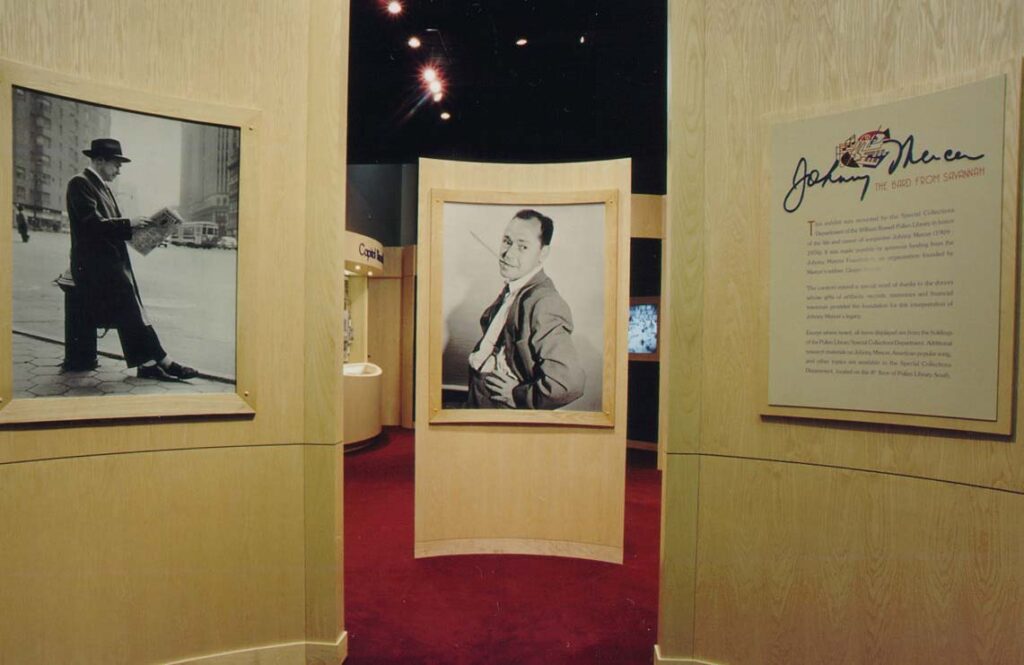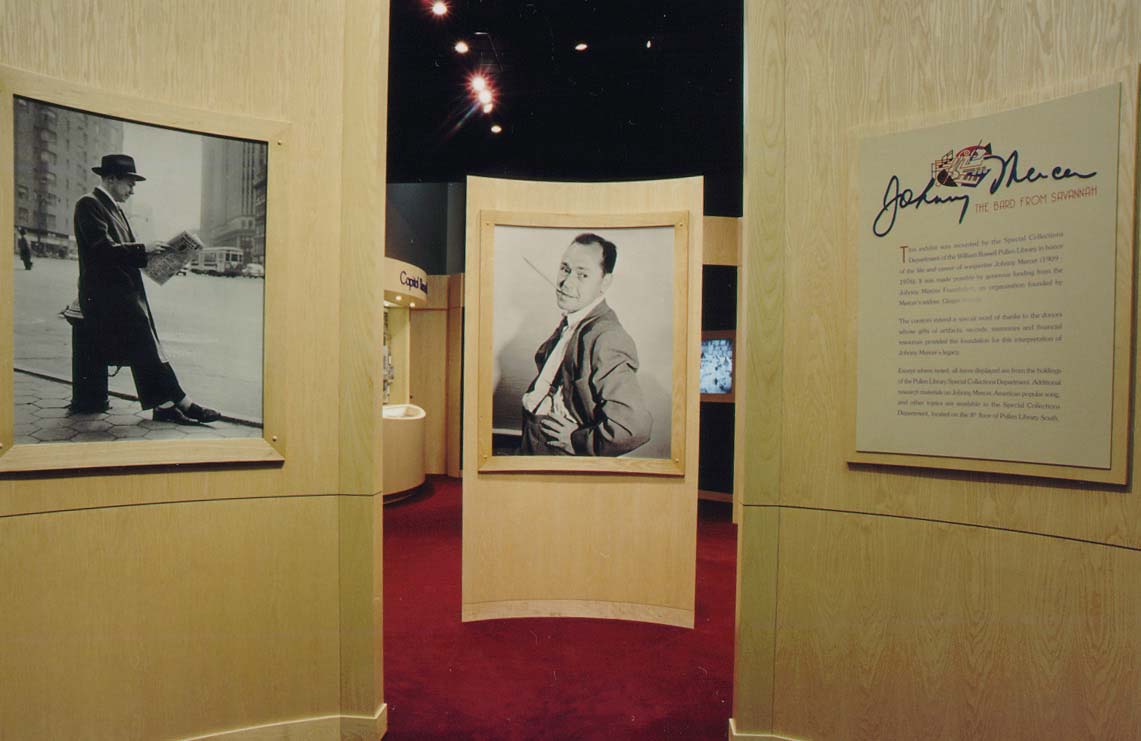With native performers ranging from Johnny Mercer to Little Richard and musical styles ranging from Sacred Harp singing to hip-hop, Georgia boasts a proud popular-music past and a growing future. Many archives, museums, libraries, and historical societies in Georgia preserve the state’s music and make it available to researchers.
Albany Civil Rights Movement Museum
The Albany Civil Rights Movement Museum, located at the historic Old Mt. Zion Church in Albany, features photographs and other materials on the civil rights movement in southwest Georgia, particularly relating to the Freedom Singers of the Student Nonviolent Coordinating Committee.
Atlanta History Center
The Atlanta History Center provides a home for the Graham Washington Jackson Papers, as well as for Jackson’s famous accordion, which he played during U.S. president Franklin D. Roosevelt’s funeral procession. The center also houses the records of the Georgia Federation of Music Clubs from 1920 to 1949, in addition to numerous other manuscripts and books related to music.
Auburn Avenue Research Library
The Auburn Avenue Research Library on African American Culture and History in Atlanta houses books, manuscripts, and jazz, blues, and gospel sound recordings. Other materials document African American entertainment in Atlanta and music halls in the state.
Emory University
The Stuart A. Rose Manuscript, Archives, and Rare Book Library at Emory University in Atlanta houses a collection of Confederate sheet-music imprints, as well as information on African American music, including the James Weldon Johnson Collection. Johnson graduated from Atlanta University (later Clark Atlanta University) and taught briefly in the city of Hampton. Although better known today as a poet and writer, Johnson wrote the lyrics to more than 200 popular songs with his brother, J. Rosamond Johnson, and Athens songwriter Bob Cole. Emory’s collection includes correspondence related to Johnson’s compositions, sheet music, and song lyrics.
Emory’s Marian K. Heilbrun Music and Media Library houses a substantial collection of nearly 40,000 sound recordings and a range of printed materials, including more than 23,000 scores and 30,000 books.
Georgia Historical Society
The Georgia Historical Society, located in Hodgson Hall in Savannah, holds Confederate sheet music as well as manuscripts related to Savannah-area music clubs and performances. The archives also include materials on Civil War (1861-65) musicians and music education.
Georgia Music Hall of Fame
The Georgia Music Hall of Fame in Macon operated as the state’s official music museum from 1996 to 2011. The museum housed and displayed a collection of costumes, instruments, sound recordings, photographs, recording equipment, sheet music, and memorabilia covering all genres of Georgia music. In addition to the exhibits, the Hall of Fame housed the Zell Miller Center for Georgia Music Studies, the museum’s library and archives. The center was named for Georgia governor and U.S. senator Zell Miller, who was instrumental in founding the Hall of Fame. Funding shortfalls forced the closure of the museum in 2011, and its collections were returned to donors or sent to repositories around the state for storage.
Georgia State University
The Special Collections and Archives Department at Georgia State University (GSU) in Atlanta houses the Johnny Mercer Collection, the largest collection of his personal papers. Mercer was a songwriter from Savannah who wrote the lyrics to some of the most recognizable tunes of the twentieth century, including “Hooray for Hollywood,” “Blues in the Night,” “That Old Black Magic,” and “Moon River,” and the collection includes sound recordings, sheet music, correspondence, lyrics, and personal effects. Also housed at GSU are materials relating to Emma Kelly (dubbed “the Lady of 6,000 Songs” by Mercer) and various oral interviews conducted with Mercer’s friends and family. In addition to the Mercer materials, the university houses collections related to the history of country music and of radio broadcasting in Atlanta, as well as numerous jazz and swing recordings.

Courtesy of Special Collections & Archives, Georgia State University Library.
Okefenokee Heritage Center
Let Us Sing, Sacred Harp in Southeast Georgia is a permanent exhibition at the Okefenokee Heritage Center in Waycross. The exhibition resulted from a collaboration of the center, the South Georgia Folklife Project, and Sacred Harp singers in southeast Georgia. In addition to the items displayed in Waycross, the Folklife Project, housed at Valdosta State University in nearby Valdosta, features materials on bluegrass, African American gospel, Primitive Baptist hymnody, Sacred Harp, and fiddling from the region.
University of Georgia
The Walter J. Brown Media Archives at the University of Georgia in Athens features such broadcast material as the Peabody Awards Collection and the Museum of Television and Radio Collection. Georgia musicians and storytellers are documented in the Allen E. MacLeod Collection and in the Georgia Folklore Collection, which includes more than 1,000 hours of field recordings made by Art Rosenbaum and the Georgia Folklore Society. The Athens Underground Sound Collection consists of audio recordings from Athens’s pop-music heyday, including early recordings by R.E.M. The Media Archives also includes material on The Now Explosion, a 1970s Atlanta music video show.
University of West Georgia
The University of West Georgia in Carrollton is home to a collection of materials on shape-note hymnody and Sacred Harp singing. The area around Carrollton and Bremen is known for the traditional a cappella religious music that emphasizes participation rather than performance. The Sacred Harp Headquarters and Museum can also be found in Carrollton and includes recordings, songbooks, periodicals, scrapbooks, and other materials.






